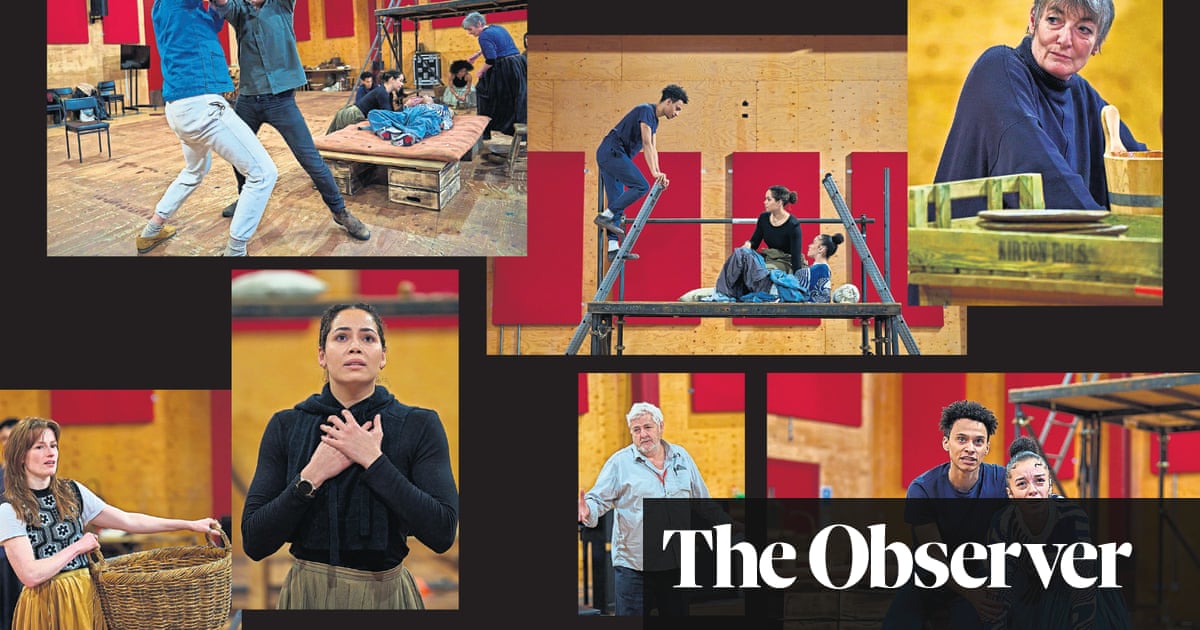
es they are fiction and yes historians get irritated that students read them as incontrovertible fact, but Dame Hilary Mantel maintains that you won’t go far wrong in understanding Tudor intrigue if you read her bestselling Wolf Hall trilogy.
“I have to say, I think I’ve given Thomas Cromwell a better audience, a better airing, a better public than historians have managed to do through the ages,” she told the Guardian.
Mantel was speaking as it was announced that her third and concluding Cromwell novel, The Mirror and the Light, will be staged in a partnership with the Royal Shakespeare Company (RSC) in the West End of London from September.
Her novels, two of which won the Booker prize, have made Cromwell, the blacksmith’s son who became Henry VIII’s right-hand man, better known than ever before.
Historians have previously expressed concern that the books are seen as fact by some of their students.
It is not a worry Mantel has much time for. “I stick as closely as I can to the historical record. You won’t go far wrong if you want to know about Thomas Cromwell by reading those books.
“It is not a locked box to which only historians have the key. There’s a great deal that the record doesn’t tell us, that was never on the record or for some reason has been lost and yet there are scenes, conversations that we know were crucial.
“It is the job of novelist to work between the lines and I don’t think for a moment that anyone is confused between fact and fiction. Every time I say ‘he thought’, they know I’m making it up, that I do not have access to the inside of a dead man’s head.”
Historians, Mantel suggested, had done a poor job until Diarmaid MacCulloch’s “great biography came along as a sort of complement to the work I’ve done in fiction.”
Mantel has adapted her third book for the stage with the actor Ben Miles, who played Cromwell in the first two parts at Stratford-upon-Avon in 2014, followed by the West End and Broadway, and will do so again this year.
The pandemic forced it to become a collaboration via email.
You can only do so much on Zoom, Mantel said, “because every line has to find its precise form for the next line to play off it. You have to have precision. We would pass our drafts to and fro, getting them to work and then polish them up line by line.
“We had to be good clerks to each other.”
It was sometimes “a bit laborious,” she said. “There’s a process by which, if you’re together, you kind of just look at each other and you know whether something is working or not. I found, in these spaces in between, I would sometimes get very nervous … ‘Have I written absolute nonsense?’ But a bit of nervousness doesn’t do writing any harm. It introduced an element of danger.”
Miles said writing in isolation did at least mean there was “air and space and time … I could hear the lines in my head as I was going about other things. It wasn’t a rushed process, it wasn’t a frenzied process.”
Mantel said live theatre was the perfect medium for historical drama and “for the retelling of history, because it reminds us that nothing can be fixed, everything is a process, everything is to be played for.
“It reminds us that these people didn’t know what was going to happen in the next five minutes. We look at it with hindsight. But in the theatre that corrupting influence of hindsight, it vanishes because every night is a fresh telling and I hope the audiences will feel that.
“Miles recalled people coming up to him after performances and saying ‘Oh, I didn’t know which Henry was going to go,’ which always felt like a terrific compliment.
“One of the thrilling things about performing the plays was conveying to an audience or causing the audience to collectively believe that they were in the present moment. It wasn’t the past any more, it was the present.”
The production will run at the Gielgud in London from 23 September to 28 November, with tickets available from 27 May.












